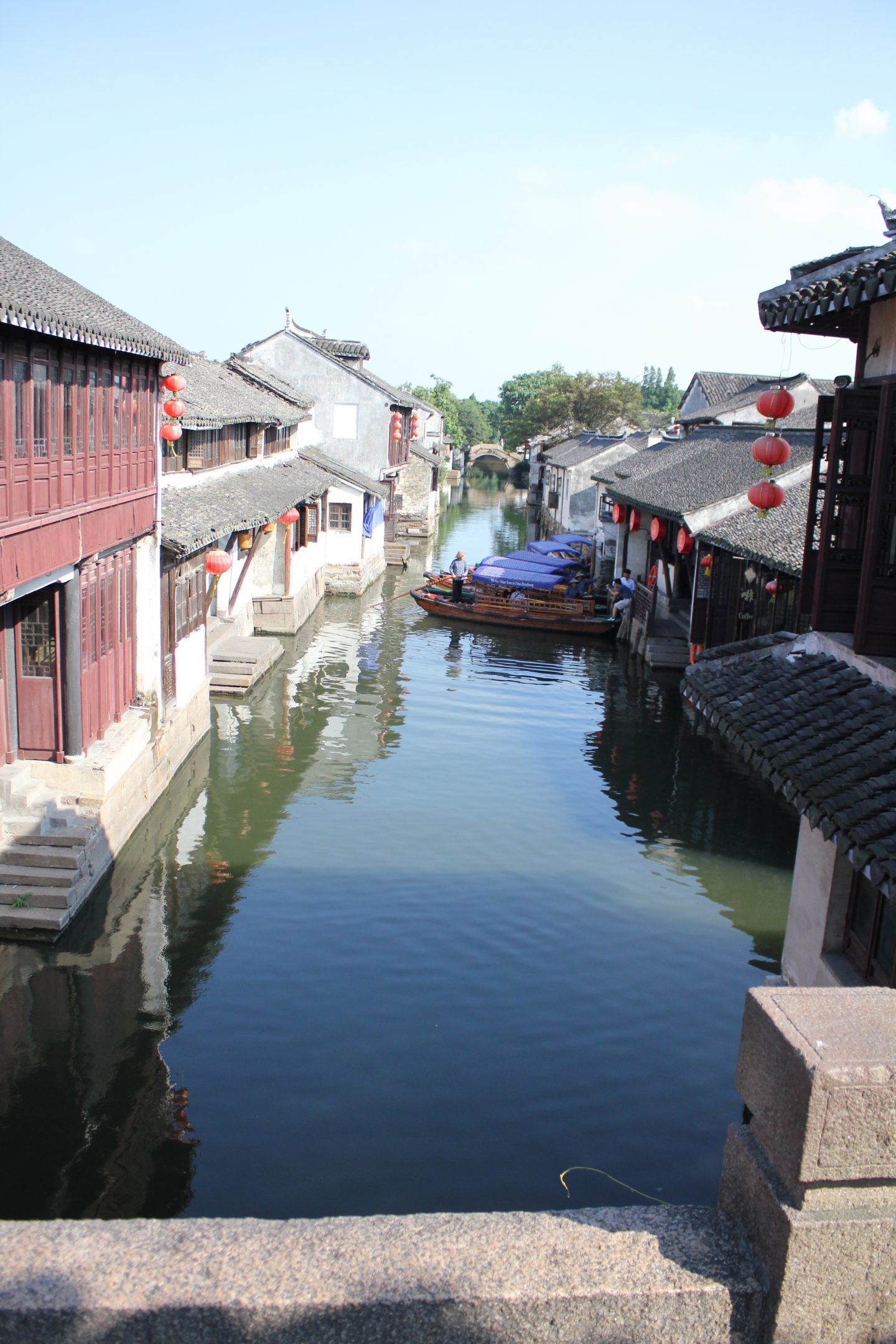April 15th, 2013
I finally arrived in Shanghai International Airport, China. I saw two of the employees, Clark and Jenny, who will be giving me a ride to Wu Jiang. That’s where the tech park and our dorms are. Let’s just say the ride itself was incomprehensible as Clark did not know how to drive. He drove all of maybe five times in his life, even though he has a license. In China, this happens a lot. Many people can’t operate an automobile because they never get the chance to practice driving after they get their license. Soon, they forget how and it’s back to square one for them. That night, I honestly didn’t think I’d make it out alive. I didn’t want to experience the pain of being in a car crash so I dozed off in the backseat and prayed for a quick painless death.
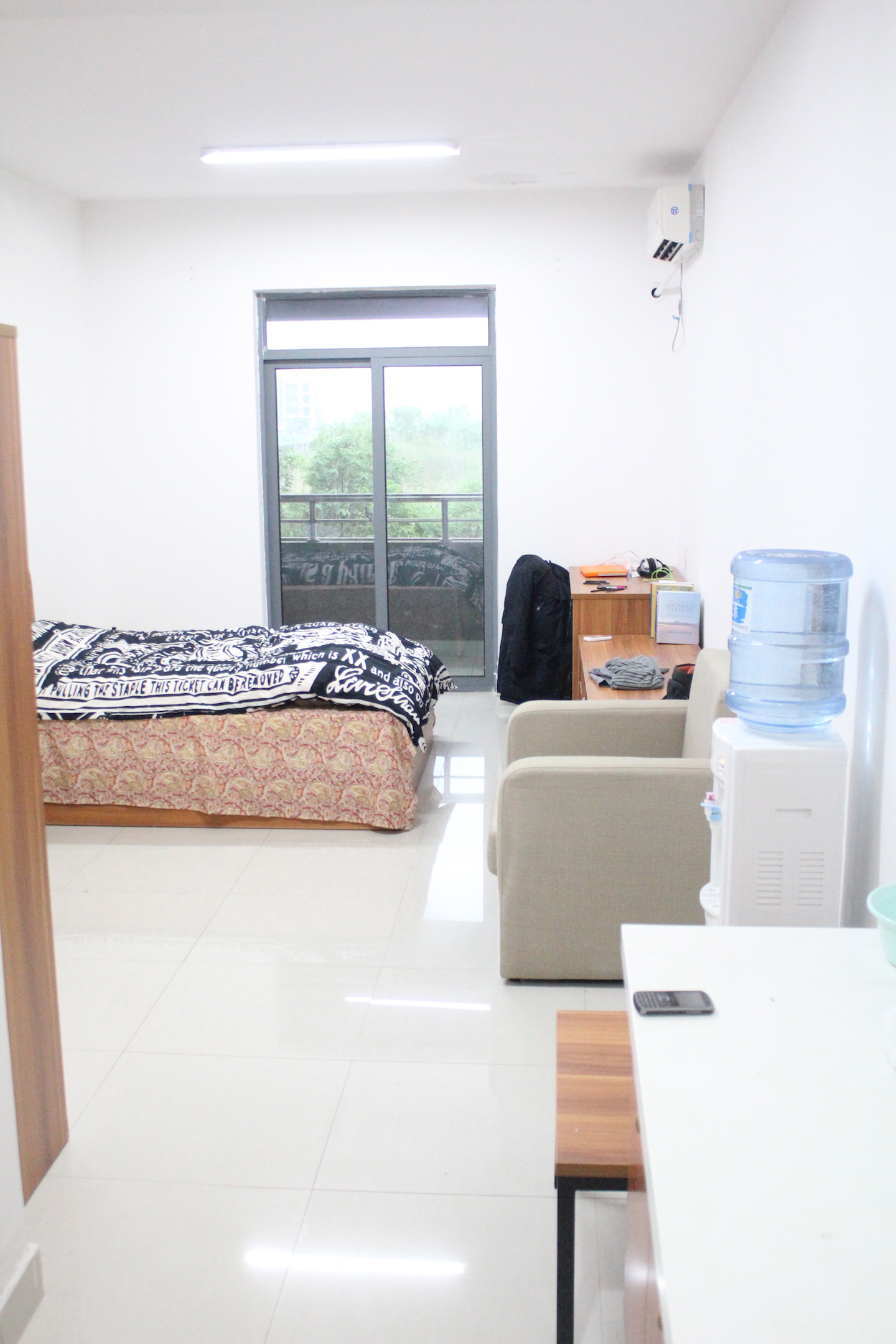
Miraculously, we made it to the tech park sometime after midnight. What should have taken an hour or so took 3.5 hours. They drove really slow and was often lost. When we finally pulled up to the parking lot of the tech park, they gave me my dorm keys, helped me with my luggage, and I finally closed the door behind them.
I turned around and took a long look at the room. It was clean, spacious, and looked exactly like a college dorm. There was a bed, some furniture, a bathroom, and the basic necessities. I was too tired. I simply unpacked my things, and just went to bed. I slept pretty well and woke up around eight the next day.
I unpacked my clothes, tidied up the place, and stepped out of my dorm for my first day in a 4th tier Chinese city. On the opposite of me, I see a grid of dorms. Eight stories high and ten dorms wide. They looked exactly the same. I then walked to the end of the hallway and climbed to the top floor. It was a beautiful sight. I could feel the wind blowing across my face and can see vast amounts of Wu Jiang land. I see lots of new building constructions. They had green see-through tarps draped against them. I could hear the chattering of the drills and see workers with their yellow helmets walk about.
China has been investing heavily in technology and entrepreneurship. The government would divide the money into all the different cities. For example, first-tier cities such as Beijing, Shanghai, Shenzhen, Suzhou, would get a big cut. Second-tier cities such as Harbin, Guangzhou, Hangzhou would get the next cut. And it would trickle on like so. Since Wu Jiang is part of Suzhou, it got some money to fund technology. Hence, they built this “Technology and Entrepreneurship” Park in Wu Jiang a few years ago. They filled it up with office space and dorms, ready for the next generation of hopeful entrepreneurs and their ideas.
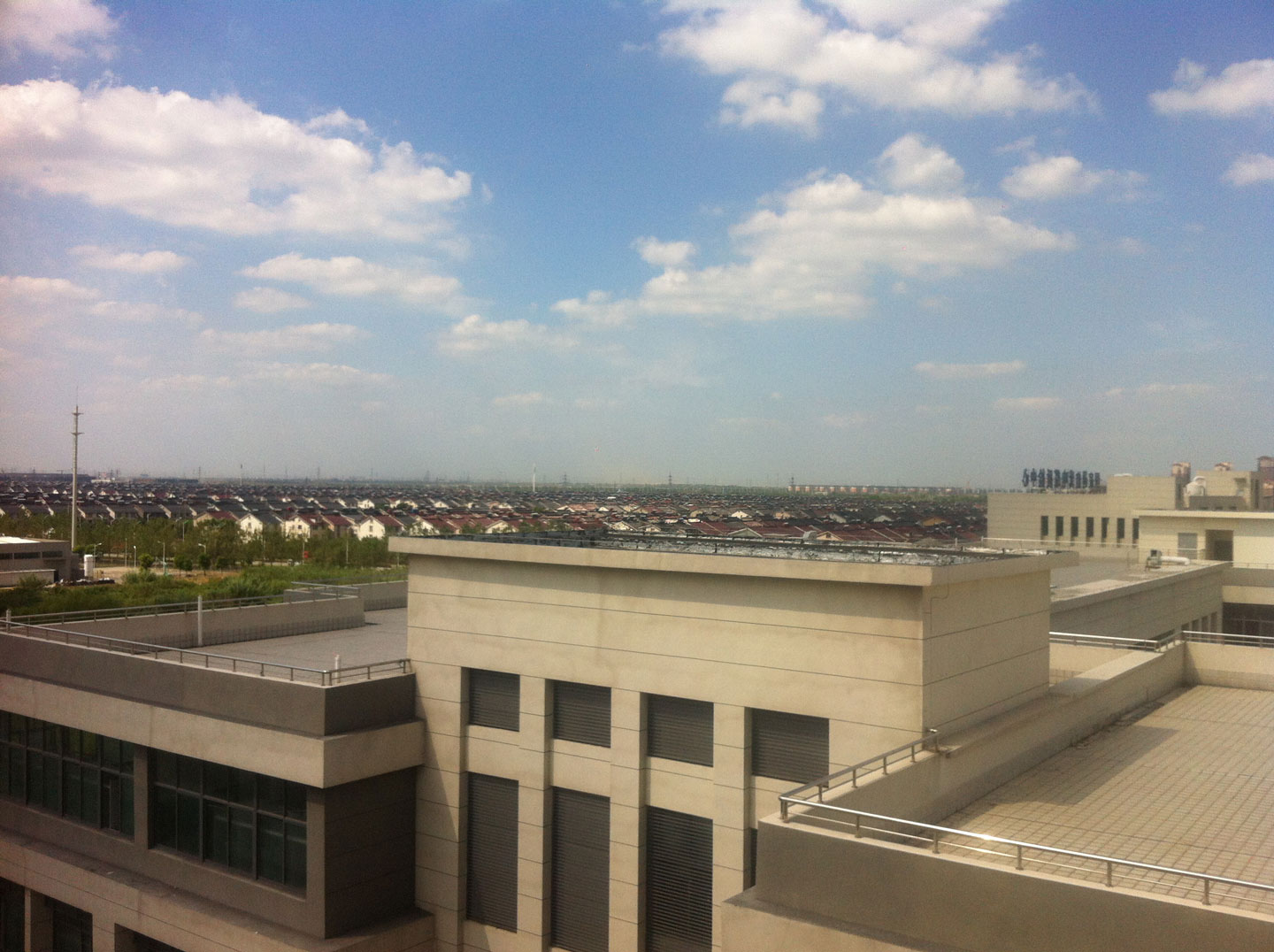
My friend Lu was an entrepreneurs. He had an idea about creating a next-generation face mask that regenerates the skin’s water content by using electrical currents. I came to China to help him out in IT and project management. When Lu’s project was approved, the government gave him some office space in this park, plus three dorms. One for him, one for me, and another for Jenny. The other employees lived off-campus in an enclave called Pang Yang.
Since Wu Jiang is a small town south of Suzhou, its population is small. It produces mostly agriculture and has a small city center where people go to eat, place, and shop. The research park is located on Chang’An road, a few kilometers away from the city center. It has about twelve buildings. Each building consists of around six to eight floors. Each floor would house a company or two. For each company, the administrators would give dorms for the bosses and some of their employees.
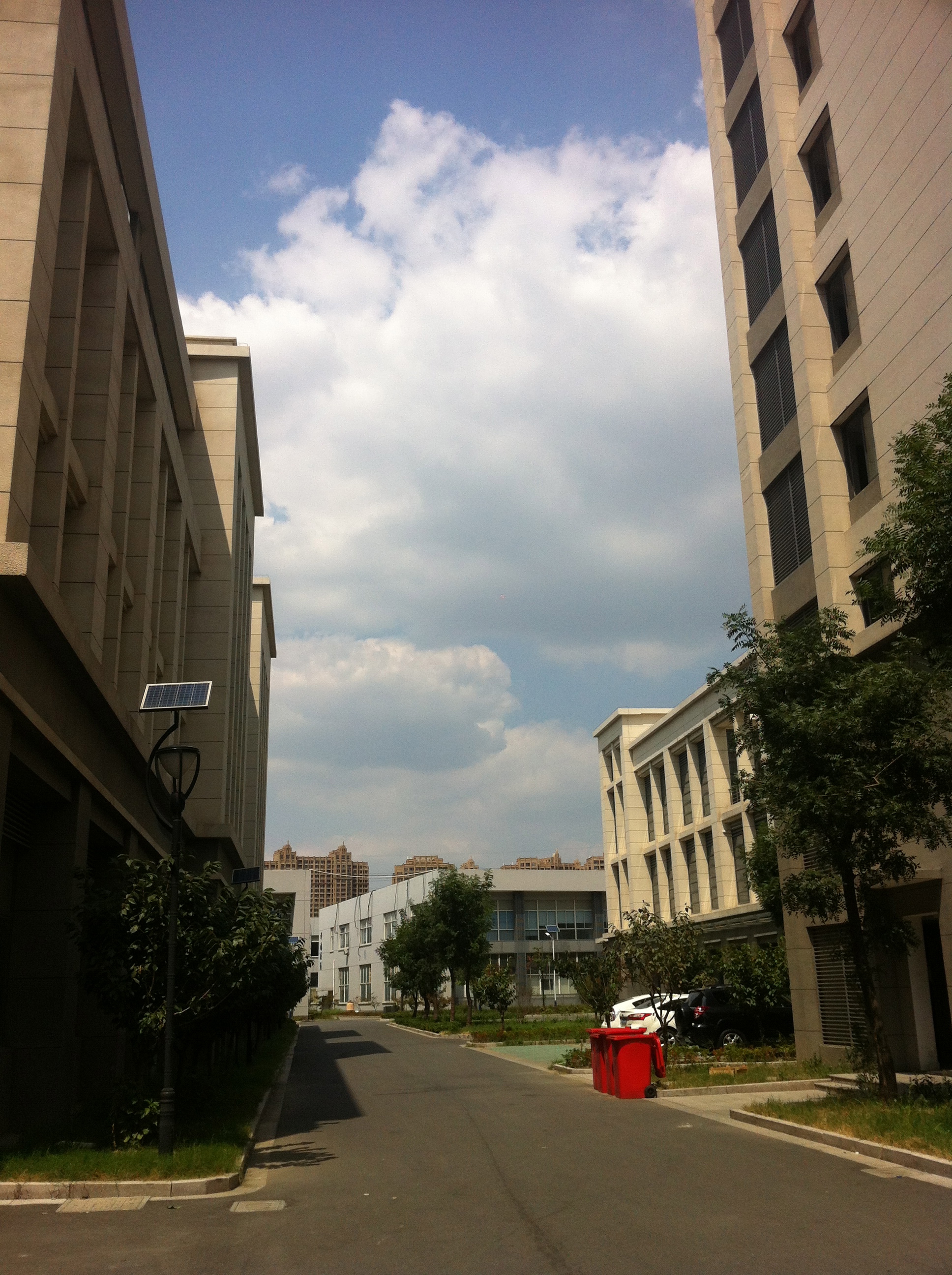
It was a Sunday morning so Lu took me to lunch. He drove the company’s red car and he took me to PangYang, which is only a ten-minute walk from the tech park. Pang Yang is this enclave where many locals live in similar-looking houses. It has a small river running through it. There were many shops and restaurants. We parked and headed inside. The standard eatery there is basically some cook in the back chopping and stir-frying some vegetables and meat. They bring it out to you, and that’s about it. Personally, I thought it was pretty good because the food was local and freshly prepared. I see fruit sellers on corners, displaying their wares. They would lay out all kinds of fruits, with prices attached. At this point in time, I couldn’t understand any words they were saying because they spoke so fast.
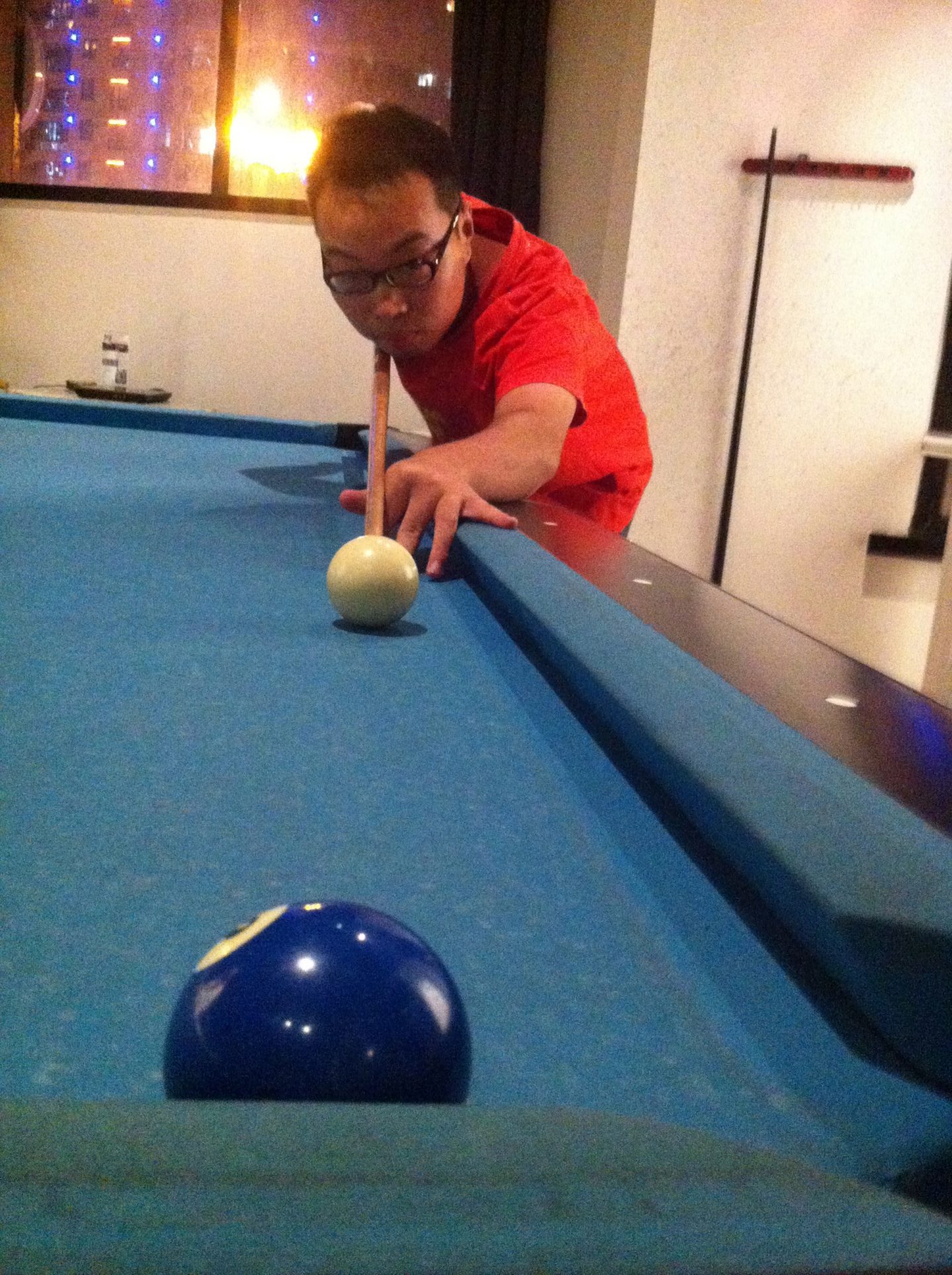
Luckily, I had a lot of help. The company had five employees: Clark, Jenny, Yang Kai, Judy, and me. Yang Kai and I became friends fast because we were pretty down to earth guys who enjoyed a good laugh. He’d practice Chinese with me and would explain all the intricacies of the language. He loves American movies and dramas, especially Prison Break. Hence he’ll teach me Chinese, and I’ll teach him English. We’d hang out often, and crack jokes about life. Sometimes, we’ll go to city center and play some pool. Other times, we’ll just have a meal and hang around to see if any debacles unfold. Since he rented a room in PangYang, I’d often join him there for lunch or dinner on the weekends.
At first, I was pretty scared of a lot of the foods there because I was over-cautious about food poisoning. I was too aware that my American stomach simply couldn’t handle a lot of foods from other countries. But Yang Kai told me that a lot of the ingredients were fresh. As long as it’s cooked, then it is fine. One day after work, we were looking for dinner when we saw an old couple standing near an electric bike that had a table cart hitched onto it. They had a make-shift kitchen on that cart, making hand made dumplings from scratch. Now when I say from scratch, it literally means they take wheat flour, mix water with it, and knead the dough. Then they have their vegetable and meat filling ready to go in a tub. They make the dumplings then and there, according to what you order.
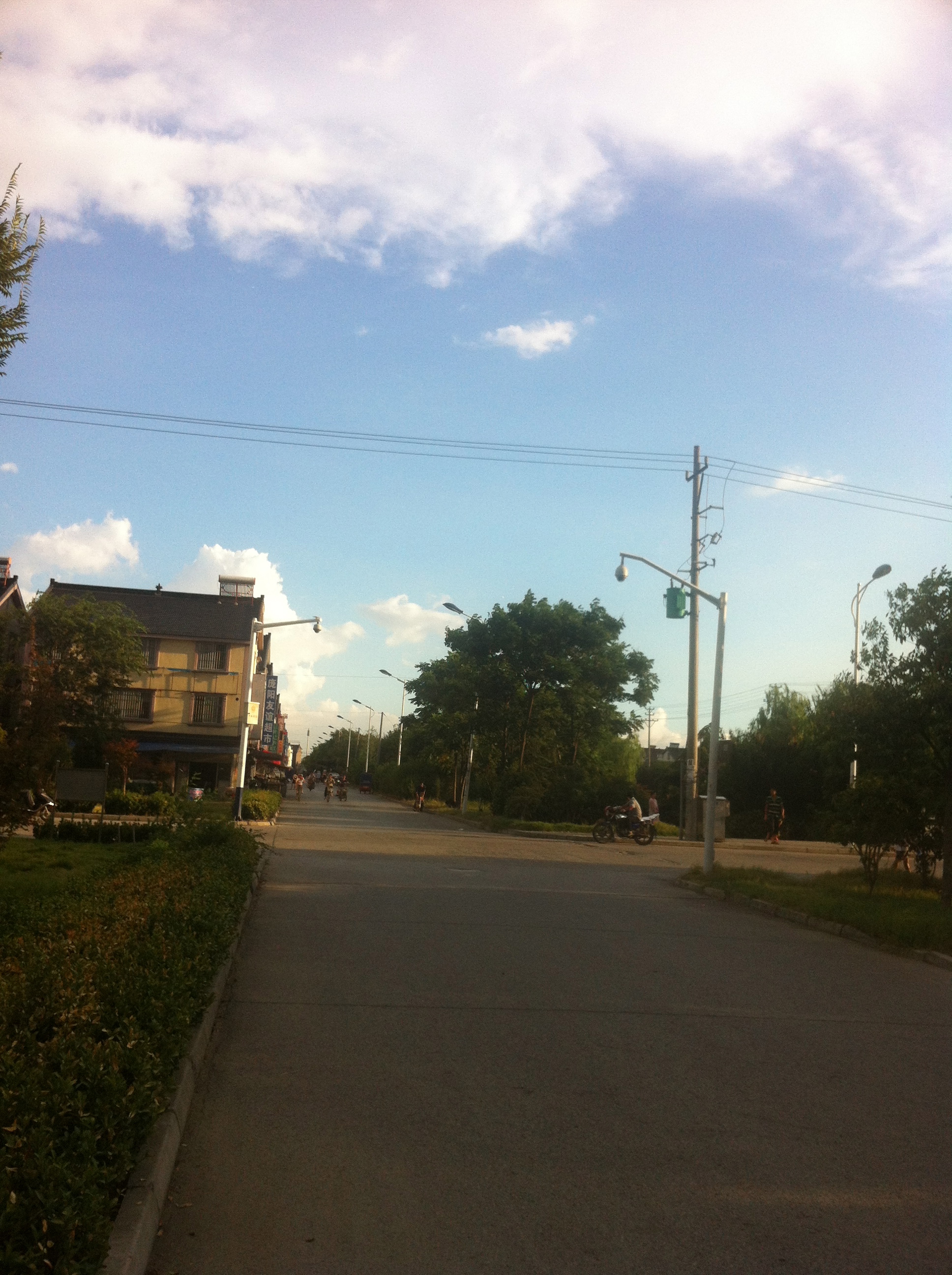
I got some vegetarian dumplings with Yang Kai and ate it sitting on some makeshift seats. It was very pleasant as we munched on the dumplings, enjoyed the breeze, and watched the local folks walk by. From that day on, I’d frequently eat there. Sometimes, I would take it home with me and chop up some garlic to go with it. It’s simply delicious and satisfying. The flour of the dumplings is cooked perfectly. It is soft but just firm enough for chewing. It holds its shape well so the filling does not come tumbling out. To me, this is the culmination of China’s simple cooking.
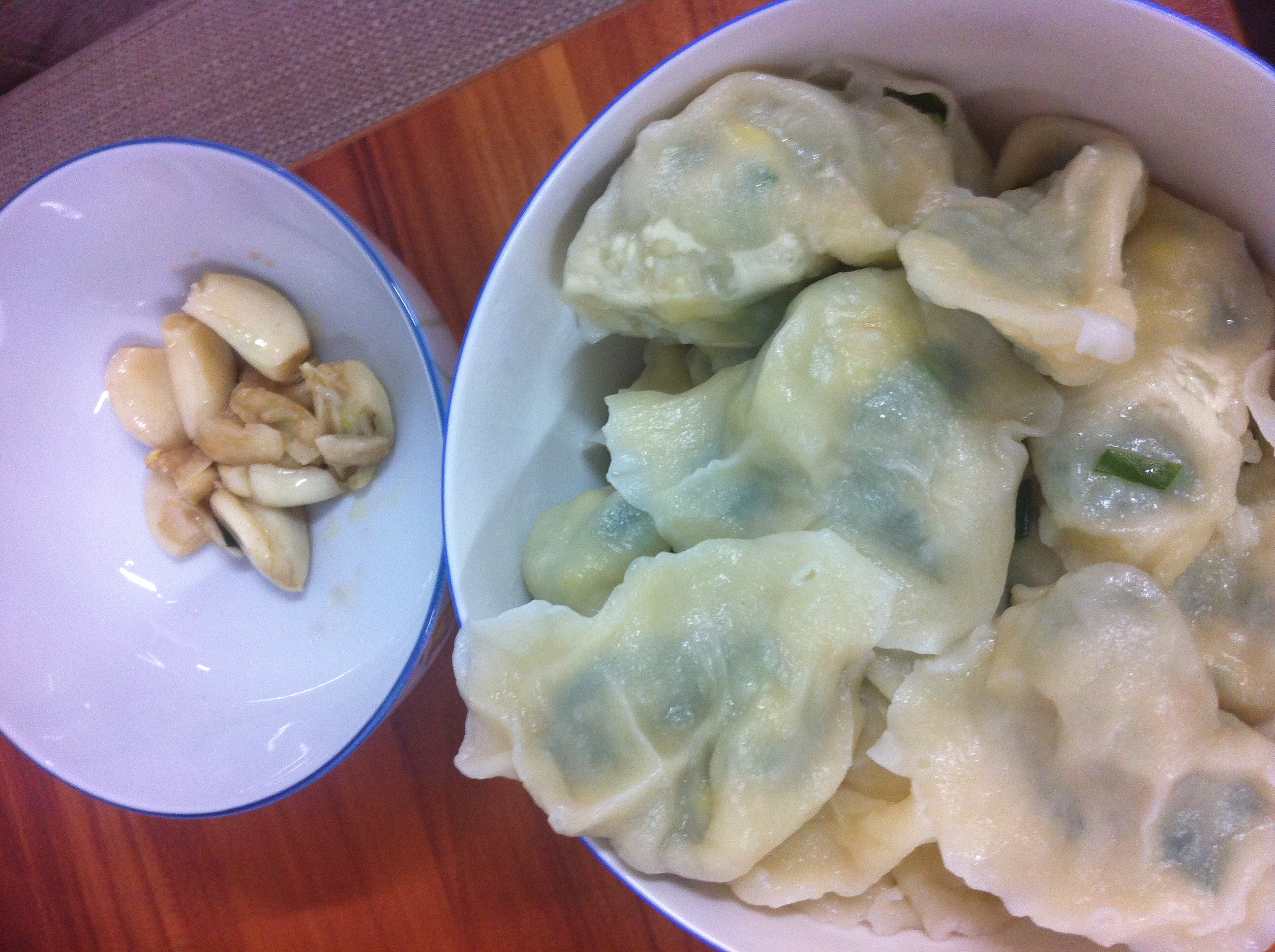
Yang Kai would also tell me that some of the roadside eateries are safe. Watch for fire stoves and wok pots on wagons. You’ll see fresh vegetables laid out next to it. Those places are safe because they showcase their daily, fresh vegetables. You go up to them and just tell them what you want to stir fry. They’ll do so and serve it with a bowl of rice. They would place their oil, spices, and salt all out in the open for you to see. They’d simply stir fry and cook what you point out. That, to me, is simple, clean, and transparent.
Usually, after work, Yang Kai and I would have dinner in Pang Yang. We’d usually sit down at some restaurant and order some local staples. Then take a stroll through Pang Yang to watch all the other people take their evening stroll. From our restaurant, we’d walk down the main road, then turn left. After walking some more, on our left-hand side, is a huge space where the aunties would come out for their evening dance. You’d see a lead dancer on stage that would start the music. Then she’d dance through some routine and all the women below would follow suit. All the aunties would sway and step with the music. You’d see kids running about with their skates, bikes, and toys. Young couples stroll hand in hand. Uncles fan themselves from the warmth, while their wives pick out fruits nearby. Grandmothers run after their grandchildren, and you can see kites flying about in the backdrop.
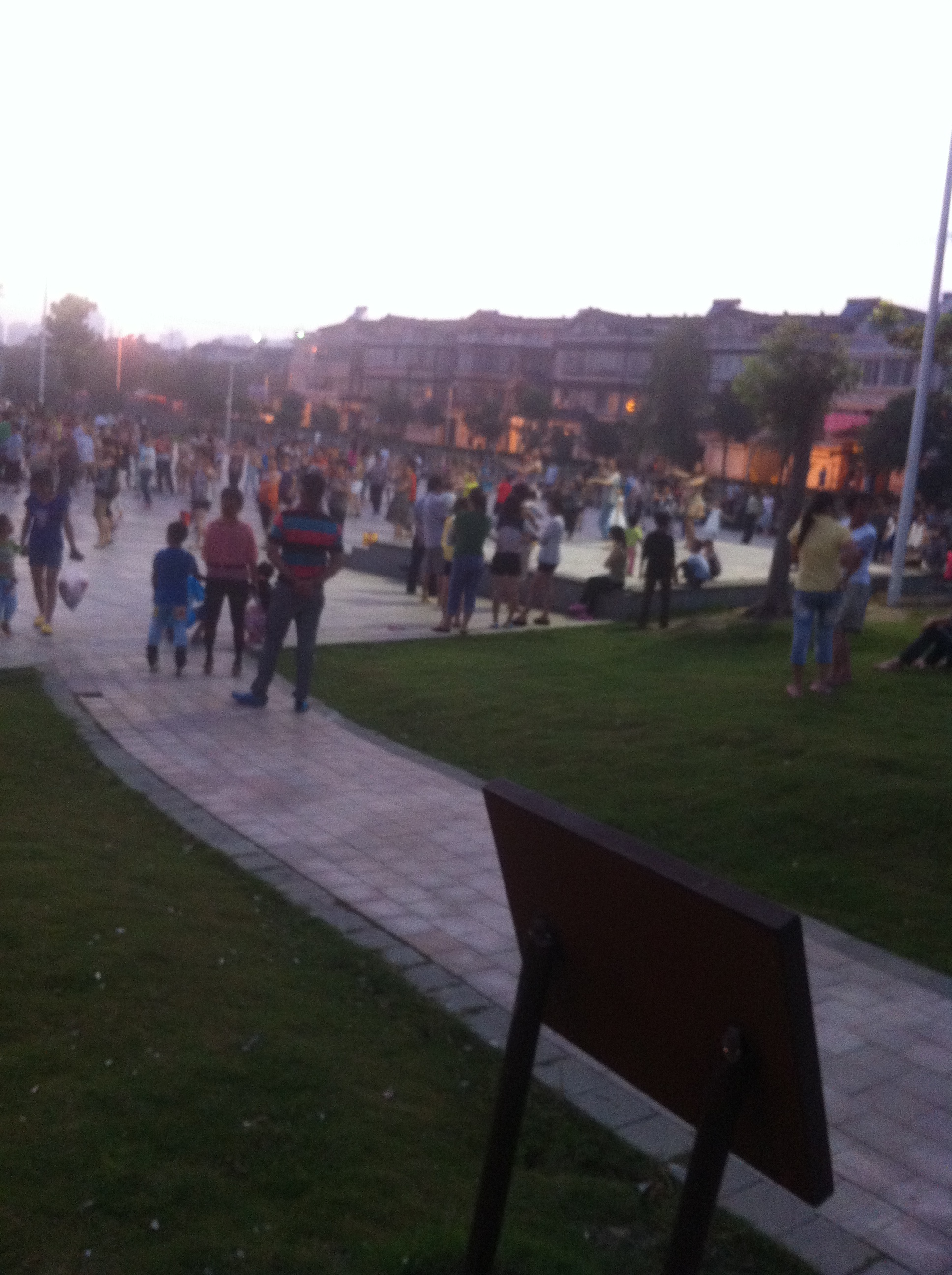
I began to reflect on my youth. I remembered the lifestyles of my grandparents. How they would prepare fresh foods for me, and a simple way of life. No TV, no cell phones. Just simple joys and laughter. Of course, when I emigrated to California, I’d remember how both of my parents would work and never be home. They would always argue and was always buying things so they’d feel good about themselves. My mom would come home and eat her dinner in front of the TV, on a wooden coffee table. I sat at the dinner table with my dad and ate a mixture of Chinese and American foods. At that moment, while the first third of my life flashed before my eyes, I slowly began to understand.
In Wujiang, a lot of people still think of the world like it’s 1990. Thus, being an American, people would automatically assume I come from a rich family. Honestly, at the time, I just have a good job, with decent pay. I had nothing else. But people assume a lot once they find out I’m a “Hua Ren”, which means overseas Chinese.
In China, like most other countries, women tend to be traditional. In finding a partner, they look for qualities of substance, which takes a long time to obtain. For example, a good career because that takes at least a good five years to get it started. Only after five years can you start commanding a salary that can support a family. They look for good family background because the guy’s parents will need to contribute to taking care of children, help with the downpayment of a house, and so forth. Good families cannot be built. It is something the guy is born into. Women will also look at the height of the guy. Taller women will give a number such as 180cm, other women will say 175cm (or whatever the average is). The minority of women will say as long as the guy is taller, then it is ok. Finally, the attitude and personality of the guy are intangibles that women can’t ignore. Hence, the pressure is on as men outnumber the women. This creates a society where men tend to be more generous, and in seeking girlfriends and wives, they will treat them extra well.
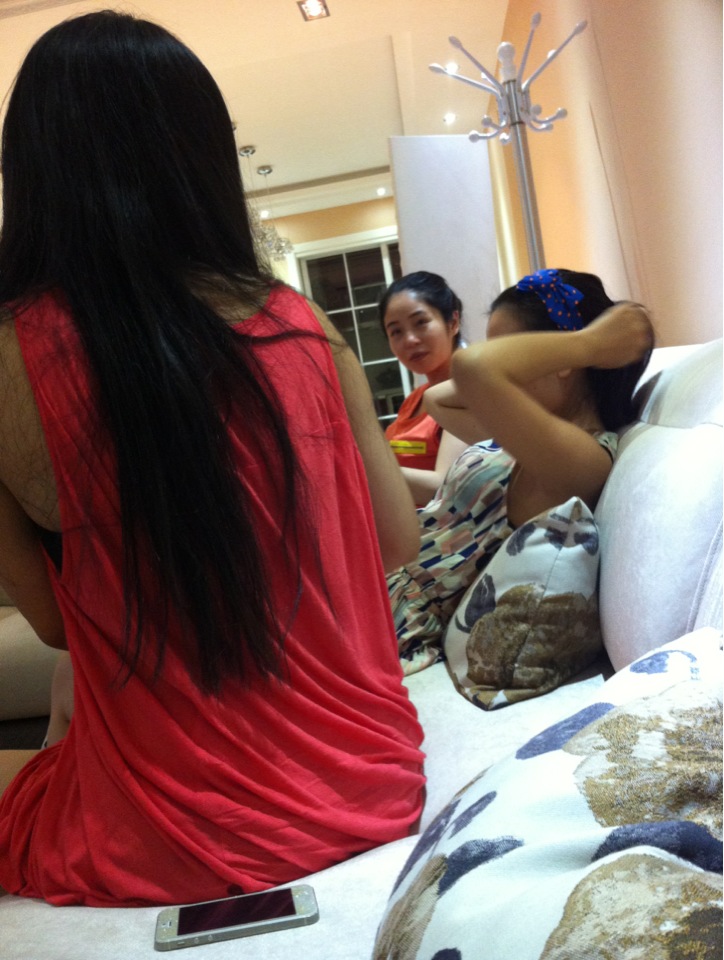
My first jump into the dating scene was pretty fun. There was a Singles Night at the tech park and all the single men crowded into the mess hall. We dressed nicely and put numbers on our shirts. Lu’s wife was the MC and she directed games and group activities for us. As the night wore on, a guy came over and gave me a note, says it is from a nice girl sitting behind him. I didn’t understand the note because it was written in Chinese but he let me know that she saw me from afar and is interested in getting to know me. Now, up that point, this is one of the most forward action from a Chinese female I have ever received at the time. And I learned that usually in public settings, females in China will always be more reserved. They will only speak to people they know and who are in their social circle. But will never be extroverted enough to make new friends and create contacts. However, the only exception is at events where it is “expected” of people to get to know each other. Like this dating event.
I met the girl after the event and we exchanged information. Her name is Shen Ming. The funny thing was that she looks exactly like my first ex-girlfriend back in California. Same eyes. Same mouth. Same facial features. The difference was that Shen Ming is a bit taller, and bit skinnier. She was a very nice girl, quiet, and teaches grade school in Wujiang. I liked everything about her, except that I couldn’t joke or communicate clearly with her. It was a little bit creepy for me because she would look at me, smile, and not say much. But mostly, I couldn’t get over the fact that she looked like my ex. We ended up being friends.
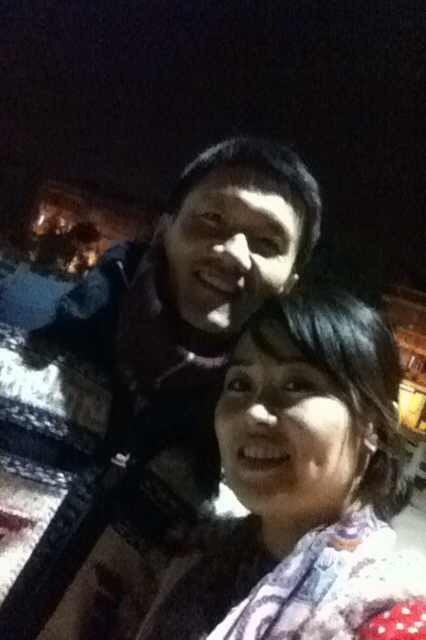
There was another girl (Wuting) that I met through interesting circumstances. I had to process my visa at the nearest police station. So I went there and they told me to wait for the officer that is going to process my visa. I heard the toilet flush, and a young girl in an over-sized police uniform comes out of the bathroom, trying to hitch her pants up to her neck. I was expecting a foul odor so I held my breath. As funny as the scene was, I noticed that she was facially very attractive. I then quickly scurried into the waiting room and waited for her to process my application.
We worked on my application and finished it. Then I exchanged contact information with her. I found out that she also lives in the Pang Yang district and that her family opened a chicken burger joint there. As the days went on, I got to know her a bit. I noticed that she has a temper. She would yell at her family members and kick little chair stools when she was angry. She was also very commanding and does not like it when people say no to her. Hence, I can’t stress how important it is to slowly take your time and get to know one person. Time will reveal who that person and you can decide whether you are compatible or not. Don’t let an attractive face in the way of making a decision clearly. Get to know her slowly and it will save you a lifetime of potential pain and suffering.
A few years later, I was proven right. She married a guy who’s family is well off. He was in the army for a few years. They eloped and had a daughter. I met the guy a few times. He’s cool-headed, generous, and seems like a really nice guy. I remember attending their wedding back in 2014. However, after marriage, she told me they were constantly arguing. After about three years of marriage, they divorced. This time around she’s back on the market, albeit with a daughter.
Tong Li
Wujiang is more of a third, maybe a fourth-tier city. It is not as developed but the locals sure know how to live. Most local natives have houses, businesses, and everything set up. They drive modern cars, live in three-story houses, and eat to their heart’s content. Their kids would then be lucky enough not to worry about having to work too hard and can start their own businesses. The working class of Wujiang, however, is made up of poorer folks from the fifth and sixth tier places. They usually come from poorer suburbs and the farms of surrounding provinces. What they earn here is much higher compared to what they can earn back home. Opportunities tend to be more abundant also.
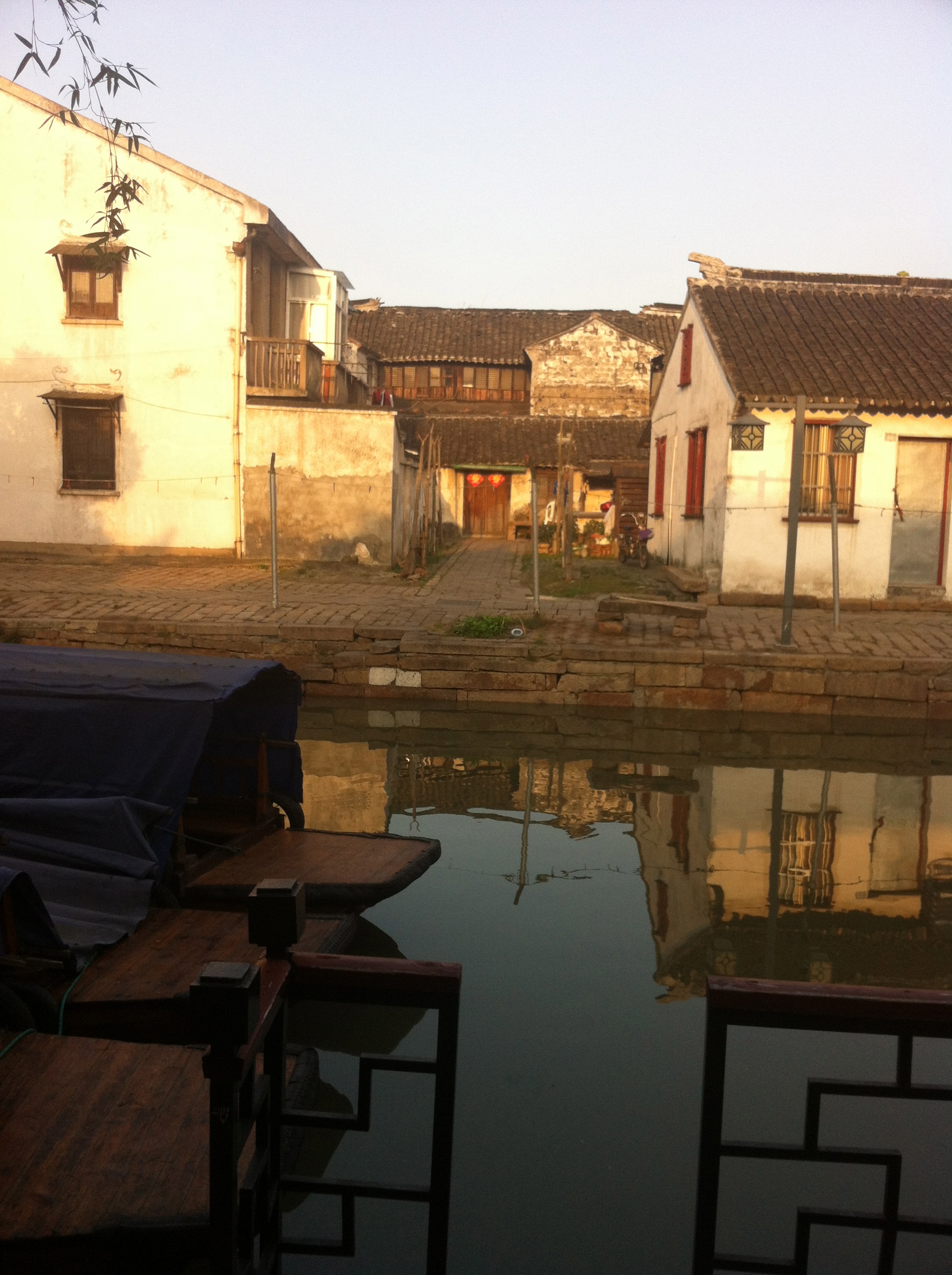
One of the Wujiang natives I know is Shirley. She met Lu’s wife through a yoga class. In return, she was introduced to me. Her parents were farmers, and also has a fishery. Her dad is a sturdy man with tanned skin from too many hours under the sun. Her mother is a petite woman, who prided herself on her cooking skills. They raised Shirley in the farms east of Wujiang. At the time, Shirley has a shop that does wedding catering. She would work weekends and provide wedding venues, activities, and catering to the surrounding areas.
Shirley is very thoughtful and has a very optimistic outlook. She drove a red Toyota and have introduced me to many friends. One of them is Wen Wen. Wen-Wen is also a Wujiang native. She has a daughter who is six years old. At the time, they took very well care of me and we explored Wujiang. Wujiang has some historic towns that they try to preserve. They make it into tourist attractions and quite frankly are fun to visit. You can enjoy local cuisine at on-site restaurants, buy novelty items in little gift shops, and ride on boats that would circulate the town river. One nice day, Shirley and Wen wen took me to Tong Li.
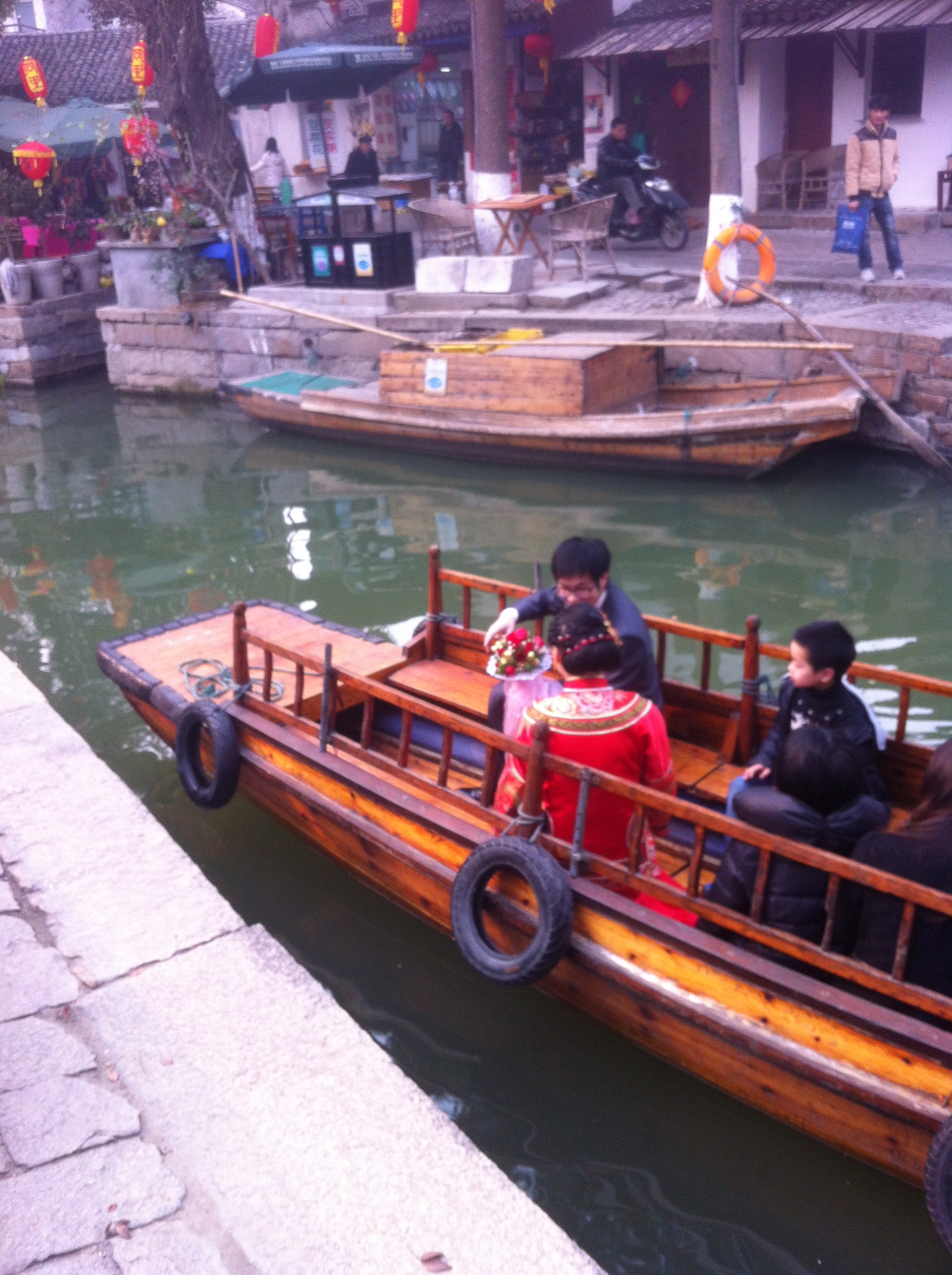
We walked around and admired the old fashioned houses, and stone cobbled road. We saw people selling their wares such as wood caricatures, beautifully embroidered qipaos, and custom paintings. There were places where you rent traditional robes worn by citizens of past dynasties. Then you pose by the river and get your pictures taken. I have seen weddings held there, rich men and their “xiao san” (mistress) strolling around with their little pet puppy, and foreign tourists snapping their cameras at everything. There were also fat chickens running around everywhere. When you sit down at restaurants, you can literally tell the boss to which little chicken you like and they’ll cook it into the style you like. Fresh, and on the spot. While we ate, folklore singers would come by and ask if we’d like a song for a tip.
Zhou Zhuang
On another beautiful day, I went to Zhou Zhuang with Shirley, Wen wen and her daughter. It was a fun trip as Zhou Zhuang is very much like Tong Li, but with a different landscape. I took much better photos with my Canon digital. We sat in one of these boats and the boat guide explained the history of the place. He sang a few folklore songs and we admired the architecture of all the stone houses. We then walked around and saw tourist groups. The tour header wore a small flag and directed the group around. In my opinion, Zhou Zhuang is a cleaner, better version of Tong Li. There’s more of a crowd walking about, and the place was a labyrinth of interesting little shops, eateries, and tradition. One pleasant surprise I had about Wujiang is that its local dialect is very similar to Shanghainese. Wujiang locals can understand my Shanghainese, and I can understand them. Whenever I was invited to someone’s home for dinner, I could easily eavesdrop on their family matters. That made my visits even more interesting.
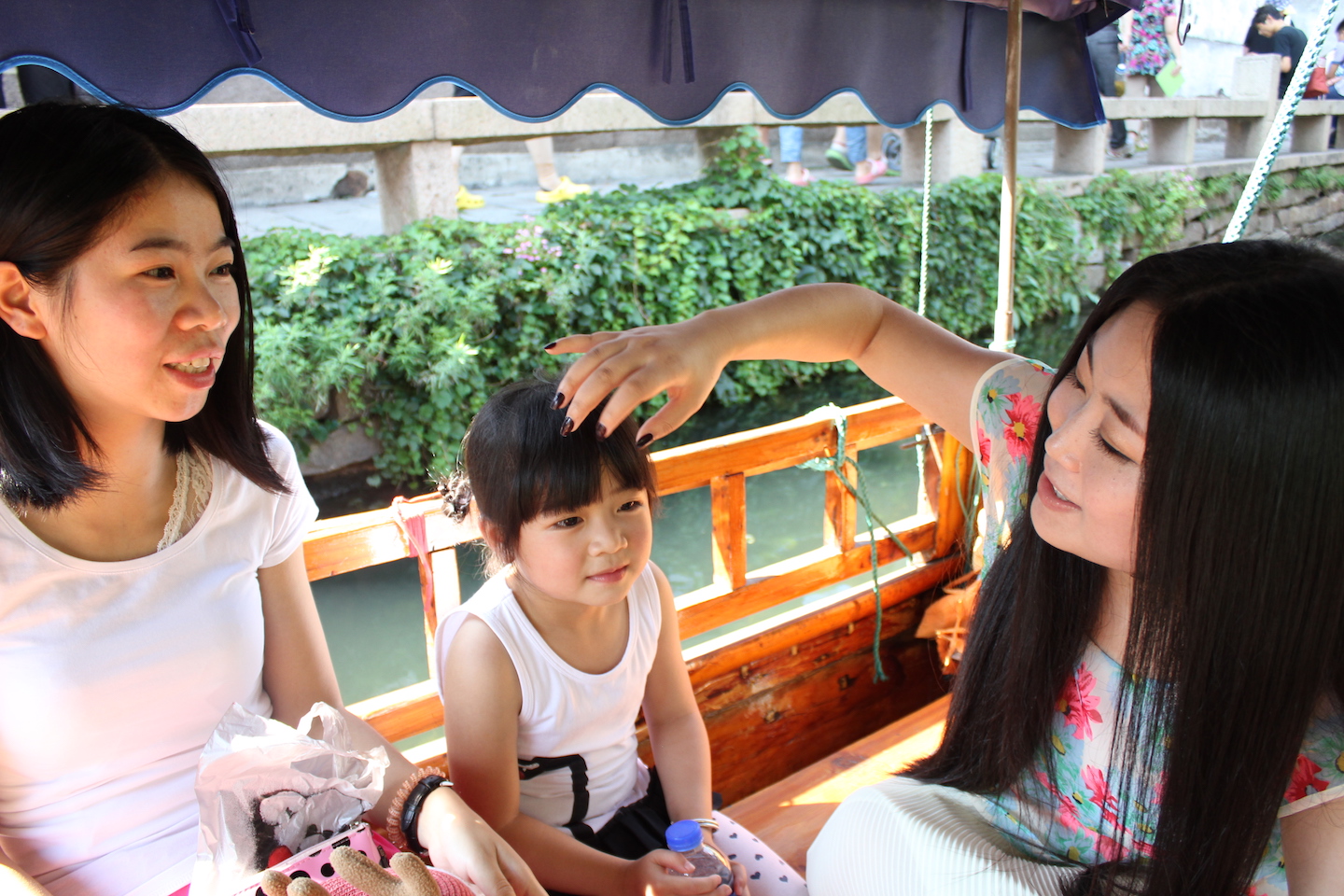
I enjoyed Wujiang from 5/2013 to 12/2014. It has treated me well, and I had a healthy dose of the positives and the negatives. I ate different foods, mingled with the locals, spent time with the hard-working outsiders, and visited scenic spots. I bought clothes and visited the city center. I took buses to Suzhou, Shanghai, Shaoxing, and many other nearby provinces. I played basketball with the local guys and shopped at various groceries. I experienced the undaunting heat of the summer and the rainy sleet of winter. It has tweaked my western perspectives and edited my assumptions. I also learned more about saving capabilities and how to organize my finances. I learned about Wechat and what I want in a wife. All in all, it has trained me to be more humble and tactful. It was what I needed as I continued my life in China. It was something I will always be grateful for.
